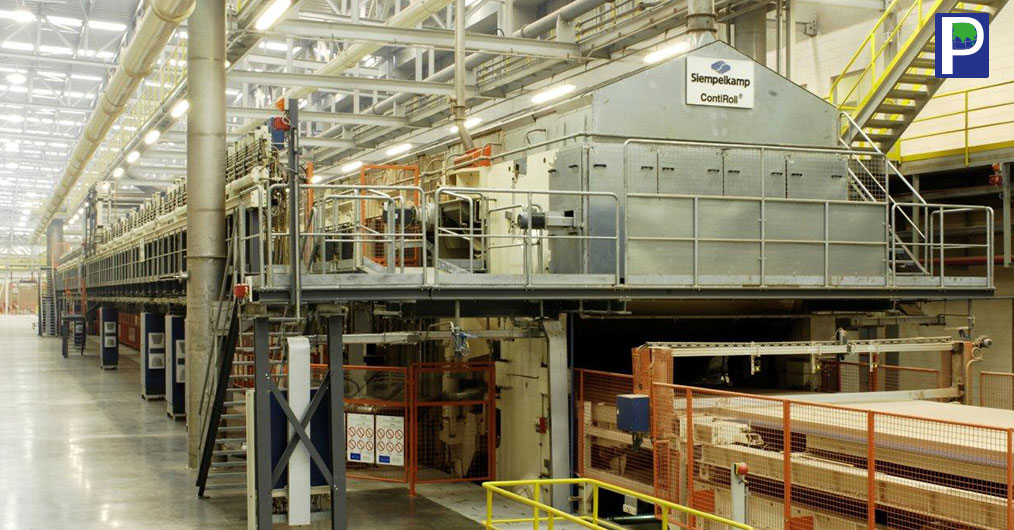
- On February 28, 2018, the first MDF board at Action Tesa was produced by a ContiRoll® of Siempelkamp
- Modern technologies for intelligent wood-based panel production with short time commissioning
- With this expansion, Action Tesa becomes the biggest MDF manufacturer in India with an annual production capacity of 5,11,000 CBM
In July 2016, Action Tesa ordered a forming and press line including the 8th Generation ContiRoll® and other components from Siempelkamp such as sifter, cooling and stacking system as well as large-capacity warehouse. In the summer of 2017, the assembly work started at the location in Sitarganj in the state of Uttarakhand. In March 2018, the plant went into operation producing boards in a thickness range from 2 to 35 mm in a daily output of 650 m3. With this high-performance machine, Action Tesa strengthens its market position in the production of MDF and HDF wood fiber boards.
Also installed was the new EcoSifter of Siempelkamp. This plant component, newly developed by Siempelkamp, was successfully installed and put into operation for the first time on the new MDF plant of Action Tesa. Mr. Vivek Jain, Director of Action Tesa, comments: “We are pleased to enrich our delivery spectrum with a system of German quality and expand our technological advantage.”On February 28, the first MDF board was produced. The width was 8’ and the thickness was 16 mm. The panel plant is able to process 100% eucalyptus wood or a mixture of Poplar and Eucalystus.”
“This goal has been achieved, after all, in a record time of 20 months from order to commissioning,” says Dr. Hans-W. Fechner, CEO of the Siempelkamp Group. With this expansion Action Tesa becomes the biggest MDF manufacturer in India with an annual production Siempelkamp starts production of MDF at Action Tesa in a record time of 20 months capacity of 5,11,000 CBM thus leaving no stone unturned in retaining No. 1 position in Panel Industry.
Especially for the Asian market Siempelkamp has developed technologies for the application of fast renewable raw materials. Annual plants, for example bamboo and rice straw, can nowadays be pressed into high-quality fiberboard and Particle board, which do not differ in quality from conventional wood-based boards.
The rich occurrence of bamboo in India is a major argument for using this alternative raw material in the local wood-based panel industry. Also, the barely used rice straw offers itself as an excellent raw material for board production in view of the large quantities of rice grown in India. The potential is huge: In India alone, around 80 million tons of rice straw is produced during rice harvest.
Siempelkamp has developed a process for significantly reducing the high silicate content in the plants for optimum product quality. For this purpose, the use of the new EcoSifter is essential, because with its unique 2-stage screening process silicates are reduced as efficiently as never before. In addition, bamboo and rice straw are sustainable raw materials with a positive CO2 balance so that their industrial use is climate-neutral.